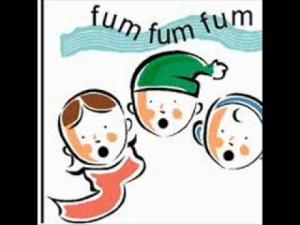
Since I believe the humanity of Jesus is our best path toward understanding divinity, I am interested when I see atheists and agnostics who are sympathetic to Jesus. Kurt Vonnegut is one of these. The radical 1960’s loved him for his quirky wit and questioning of accepted wisdom. But the label of countercultural hero didn’t fit very will according to this article by Dan Wakefield. Vonnegut was in love with Jesus. (Quotations below are from the Wakefield article.)
Vonnegut’s religious humor
Vonnegut loved to trip people up with unexpected religious-themed twists. About his plans for a second marriage, he wrote, with a touch, I think, of self-deprecation:
It will be as secular as I can make it, since I am not a Christian of any kind. But it will take place in a church, because churches are so beautiful—and holy.
Vonnegut’s humor and his preference for Jesus both appear in an incident that Wakefield recounts. Vonnegut had attended a talk on transcendental meditation by Maharishi Mahesh Yogi. He wrote this response:
I went outside the hotel, liking Jesus better than I had ever liked Him before. I wanted to see a crucifix, so I could say to it, “You know why you’re up there? It’s Your own fault. You should have practiced Transcendental Meditation, which is easy as pie. You would also have been a better carpenter.
The Beatitudes
Vonnegut once said he was “a Christ-worshiping agnostic.” Neither he nor Jesus believed in taking the easy way. That may be why Vonnegut admired Jesus’ Beatitudes and found in them an occasion for criticizing Christians of a certain political stripe:
For some reason the most vocal Christians among us never mention the Beatitudes. But often, with tears in their eyes, they demand that the Ten Commandments be posted in public buildings. And of course that’s Moses, not Jesus. I haven’t heard one of them demand that the Sermon on the Mount, the Beatitudes, be posted anywhere. (from The Man Without a Country)
The Sermon on the Mount had become a “keystone” in Vonnegut’s thought since his acquaintance with union organizers. One of these found his inspiration in that Sermon. Vonnegut said,
I am enchanted by the Sermon on the Mount. Being merciful, it seems to me, is the only good idea we have received so far. Perhaps we will get another idea that good by and by—and then we will have two good ideas.
In a commencement address at Alex Scott College, Decatur, Georgia. Vonnegut said,
If Christ hadn’t delivered the Sermon on the Mount, with its message of mercy and pity, I wouldn’t want to be a human being. I would just as soon be a rattlesnake
Jesus in contemporary literature, or not
Vonnegut’s career coincided with a time when secular publishers shied away from Jesus. He was nearly alone among major American post-war novelists in his fascination with the founder of Christianity. Wakefield reports that a publisher rejected preacher James Baldwin’s autobiographical novel Go Tell It on the Mountain because of all the “Jesus stuff.”
But Vonnegut found echoes of Jesus in Mark Twain’s words, including this saying:
When I find a well-drawn character in fiction or biography, I generally take a warm personal interest in him, for the reason that I have known him before—met him on the river….
“The river, of course, is life,” Vonnegut said. “Mark Twain is saying what Christ said in so many ways: that he could not help loving anyone in the midst of life.”
Jesus greatest teaching, according to Vonnegut, is from the Lord’s Prayer: “Forgive us our trespasses as we forgive those who trespass against us.” For those 12 words Jesus “deserves to be called ‘the Prince of Peace.’”
Jesus, the “wild and loving brother”
The rapid growth of Christianity in the midst of the Roman Empire impressed Vonnegut. He attributed the movement’s success to the way it provided its members with extended families.
The state religion formed crowds of strangers to propitiate gods in enormous buildings or plazas. Christians prayed with cozy little bunches of friends who met regularly in cozy little places, which felt much better….”
Vonnegut went to a concert of Andrew Lloyd Weber’s Requiem Mass. Having loved the beauty of the Latin, he reacted quite differently to the English program notes. He “stayed up half the night” writing his own version, with a more merciful message: “I got rid of the judges and tortures and the lions’ mouths, and having to sleep with the lights on.” His version of “Let perpetual light shine upon them” was: “Let not light disturb their sleep.” Probably he was serious about it, but it seems funny to me. In that piece he wrote of Jesus:
My wild and loving brother
did try to redeem me by suffering death on the cross:
Let not such toil have been in vain.
Eventually he got a Universalist Unitarian choir to perform his more merciful “Requiem Mass.”
A Christmas carol by Kurt Vonnegut
The words of a Christmas carol are the epigraph to Vonnegut’s novel Slaughterhouse Five. The narrator of the story says “Billy cried very little, though he often saw things worth crying about, and in that respect, at least, he resembled the Christ of the carol: The cattle are lowing, / the Baby awakes, / But the little Lord Jesus, no crying he makes.”
Here now is Kurt Vonnegut’s own Christmas carol, which he penned in a letter to a friend.
Angels said come to this stable rude,
Where deep in the hay, which is cattle’s food,
Lies a baby who sleeps full of milk so sweet,
More precious than rubies from head to feet.
Here is my guide, sang the Angels, to Paradise.
Am I foolish to come here, or am I wise?
This is the place,
He is here, he is here.
Those who would kill him
Are near, are near.
So keep him our secret,
So dear, so dear
And the mother’s name is May-ree.
Starlight did wake me from deathlike sleep
So filled me with joy I did laugh and weep.
I did follow the star to this rustic shed,That my starving soul might at last be fed.
Here is my guide, said the starlight, to Paradise.
Am I foolish to come here, or am I wise?
This is the place,
He is here, he is here.
Those who would kill him
Are near, are near.
So keep him our secret,
So dear, so dear.
And the mother’s name is May-ree.Season’s Greetings,
Kurt Vonnegut
Image credit: Quotes Sayings via Google Images












